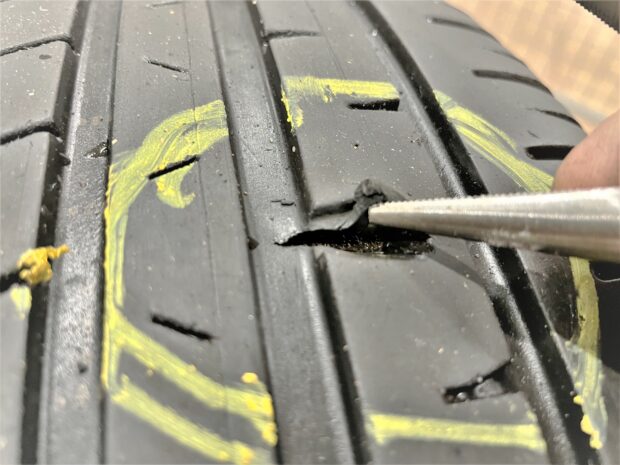It’s essential to understand the condition of your vehicle’s tires for road safety, particularly when dealing with part-worn tires. Part-worn tires are resold used tires, commonly in use throughout the UK. Unless you replace the tires with a new set when purchasing a second-hand vehicle, you are essentially buying part-worn tires. These tires are also sold as part-worn even without a second-hand vehicle. It’s not illegal to sell and fit part-worn tires, but there are significant risks associated with using them if there are underlying issues.
Around 10% of all tires purchased in the UK, equating to approximately five million tires, are part-worn, according to the Tyre Industry Federation. New tires are manufactured to a high standard and are safe down to the legal tread limit. However, tires removed from vehicles and resold with minimal tread wear could pose a potential risk if an underlying issue exists.
It’s crucial to ensure that part-worn tires have been correctly inspected and tested before purchase. The Market Surveillance Unit (MSU) is responsible for monitoring compliance with relevant regulations, including environmental and safety standards, in the UK automotive sector.
To avoid purchasing unsafe part-worn tires, buyers should inspect the tire’s general condition, including structural integrity, tread depth, lumps, bulges, and exposed cord or ply. Any penetration damage should be repaired to British Standard BS AU 159, and all part-worn tires should display the relevant “E” mark with “PART-WORN” in uppercase letters of at least 4mm high permanently and legibly applied to the tire. Additionally, all part-worn tires must pass an inflation test before sale.
The DVSA, in collaboration with Trading Standards in GB and the Environmental Health Service in Northern Ireland, conducts joint operations to focus on tire supply at the point of sale. The MSU also investigates the sale of part-worn tires bought from online retailers. During investigations, the DVSA discovered that 96% of all part-worn tires bought complied with the minimum tread depth requirement, with 85% non-compliant due to incorrect marking. Furthermore, 11% of tires bought during the exercise were over ten years old.
The DVSA has found issues such as cuts in the primary tread area, incorrectly fitted tires, abnormal bulges in sidewalls, unpermitted area repairs with a “string” type plug, and hard objects penetrating the tire. If unsafe tires continue to be sold, or there are ongoing breaches of marking regulations, the DVSA will thoroughly investigate and take action against the businesses involved.
The MSU is dedicated to monitoring the sale of part-worn tires to help keep vehicles on UK roads safe and compliant. To ensure safety, purchased tires should meet legal requirements, and suppliers must adhere to rules and regulations. If you believe a manufacturer or supplier is illegally supplying part-worn tires, contact your local Trading Standards office.

